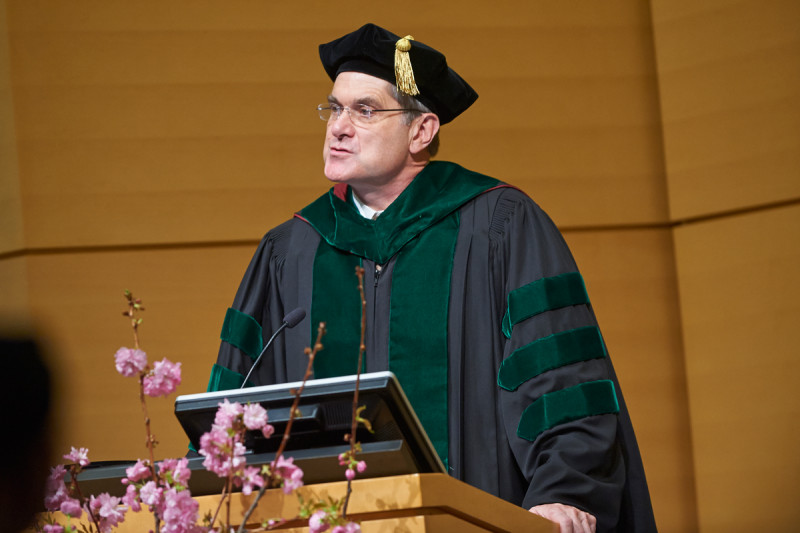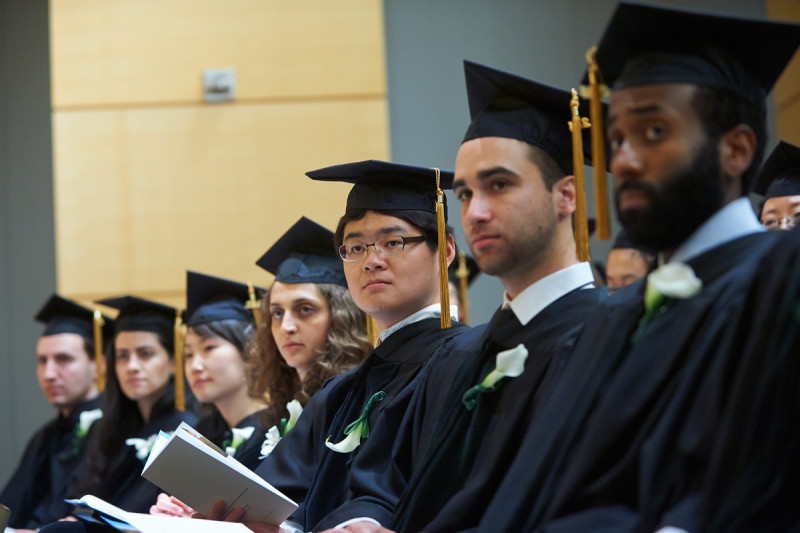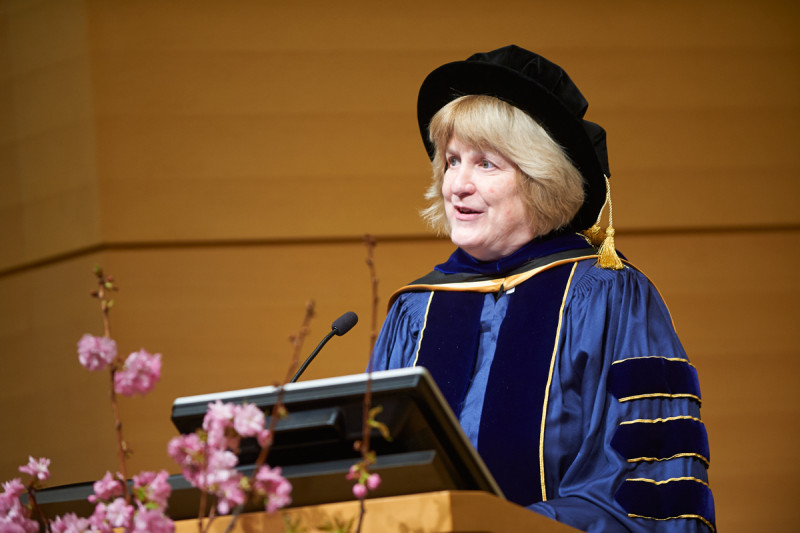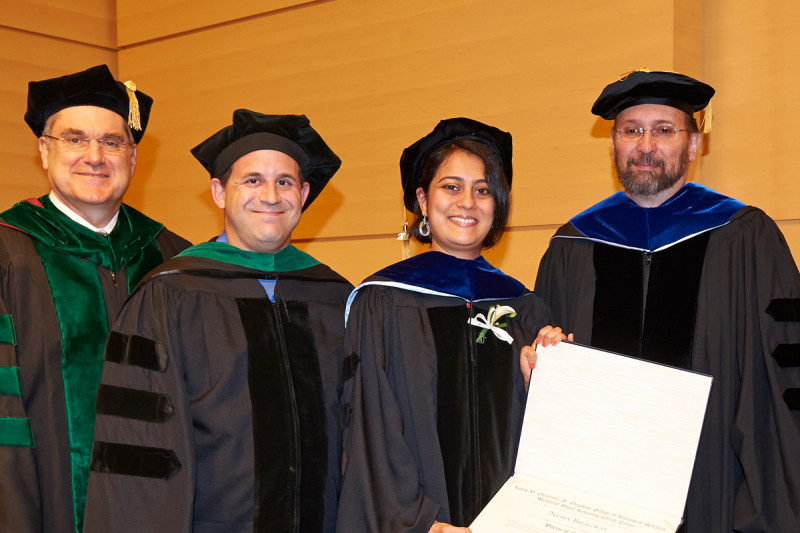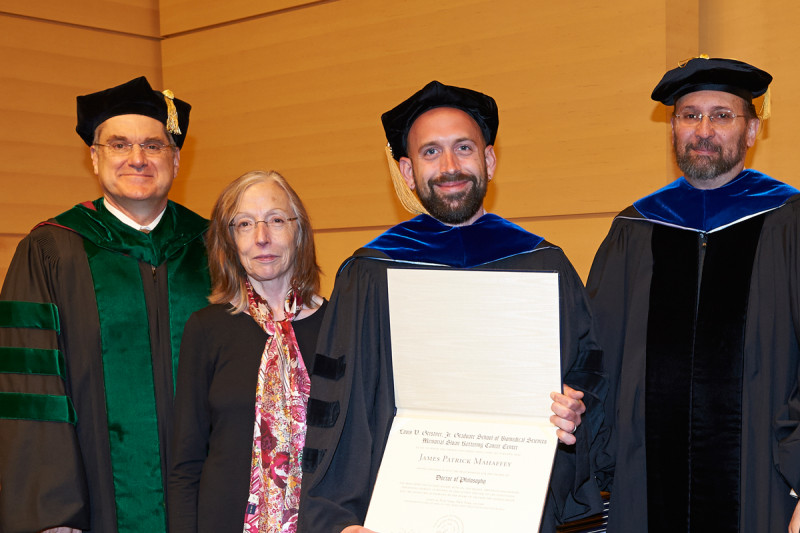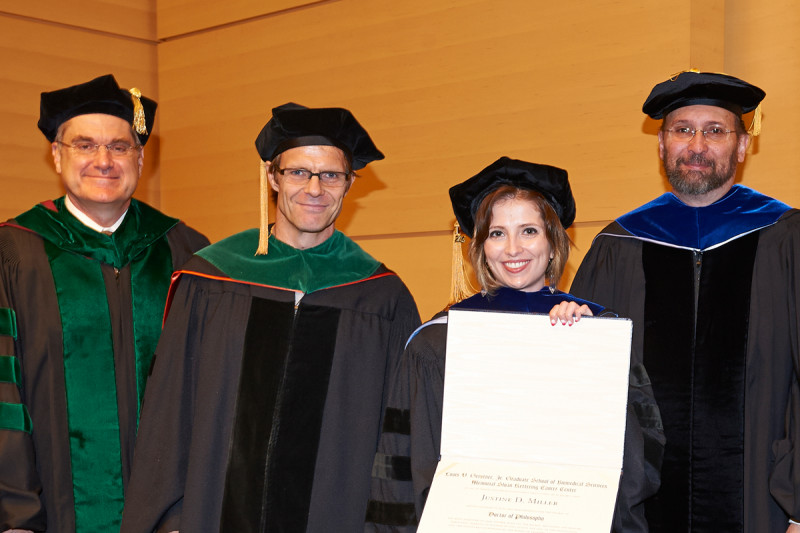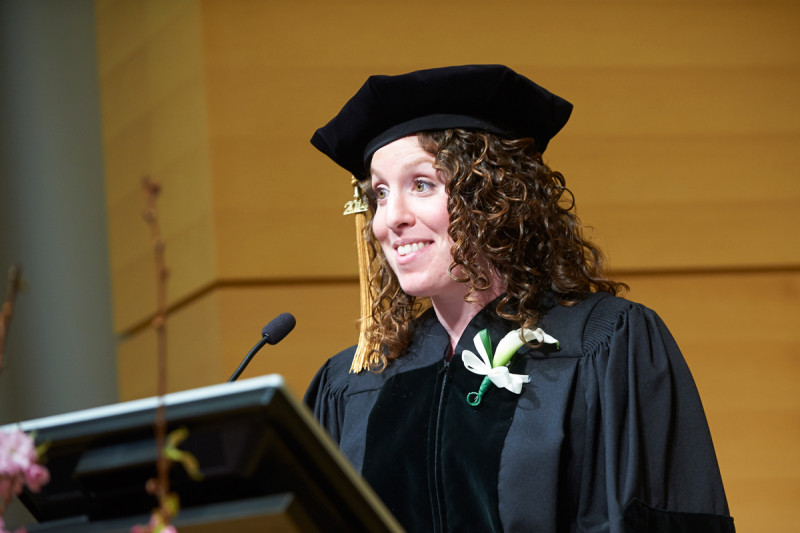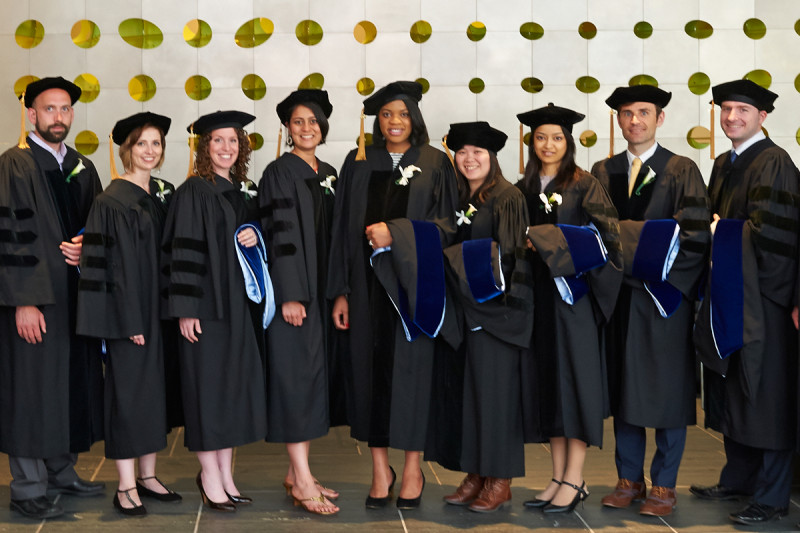May 14 marked Memorial Sloan Kettering’s 35th annual Academic Convocation ceremony, along with Commencement exercises that recognized the 12 students who earned their PhD degrees this year from the Louis V. Gerstner, Jr. Graduate School of Biomedical Sciences. Members of the Memorial Sloan Kettering community as well as leaders in cancer research from outside institutions also received awards.
An “Amazing Time” at Memorial Sloan Kettering
President and CEO Craig B. Thompson welcomed the attendees and remarked on the highlights and milestones at the institution since last year’s ceremony. “It has been an amazing time at Memorial Sloan Kettering. The year has gone by in a blur. Over the course of the past 12 months, we have created a number of programs and initiatives that hold enormous promise for the future of cancer research and the development of more-precise ways to diagnose and treat the disease,” he said.
“I could go on much longer about everything that energizes and excites [me] about this institution and the work I see going on around me every day,” he added. “But let me just say that Memorial Sloan Kettering is an incredible institution filled with dedicated staff and talented trainees.”
Recognizing Clinical and Scientific Excellence
Academic Convocation honors graduate students at Weill Cornell Medical College who have conducted their dissertation work in Memorial Sloan Kettering laboratories. This year 50 students earned their degrees.
The ceremony also honors younger Memorial Sloan Kettering physicians, scientists, and postdoctoral fellows whom the institution recognizes as showing great promise in the early stages of their careers as well as established clinicians and investigators from Memorial Sloan Kettering and beyond.
Among the recipients this year were Cole M. Haynes, an Associate Member in the Cell Biology Program of the Sloan Kettering Institute (SKI), who received the Boyer Basic Research Award; Ronglai Shen, an Assistant Member in the Epidemiology and Biostatistics Department, who received the Boyer Clinical Research Award; and neurosurgeon Mark H. Bilsky, who received the Willet F. Whitmore Award for Clinical Excellence.
“Today, we recognize Mark for his exceptional clinical skills, for his compassionate commitment to his patients, and for the guidance, inspiration, and friendship he has provided to us at Memorial Sloan Kettering over many years,” said Physician-in-Chief José Baselga in presenting the award to Dr. Bilsky. “His door is always open and his humanity, dedication, clinical excellence, collaboration, and collegiality serve as shining examples to us all.”
Thomas J. Kelly, a former Director of SKI who remains at Memorial Sloan Kettering as an investigator in the Molecular Biology Program, was presented with an honorary Doctor of Science degree. “During his time as SKI Director, Tom led the largest expansion of laboratory research in SKI’s 65-year history,” Dr. Thompson said, before conferring the degree on Dr. Kelly. “Tom’s time, energy, and inspiring leadership in this effort have put Memorial Sloan Kettering in a unique position to make discoveries that have [advanced] and will continue to further our understanding of human disease, and will allow us to harvest the ripest fruits of such discoveries to benefit our patients, both today and into the future.”
This year Mary-Claire King, a professor of genome sciences and medicine at the University of Washington, was presented with the Memorial Sloan Kettering Medal for Outstanding Contributions to Biomedical Research. Dr. King was recognized for her many extraordinary scientific and humanitarian contributions, including the discovery of genetic causes of some breast and ovarian cancers, and her pioneering use of genetics to identify victims of human rights abuses. In delivering the convocation address, she spoke eloquently of the many ways in which scientists may strive to improve society, summoning the graduates to pursue their future careers as fully engaged citizens of the world.
Fostering Scientists and Citizens
After Dr. King’s talk, Kenneth J. Marians, Dean of Gerstner Sloan Kettering, presented the graduating students with their degrees. One of those students, Moriah Nissan, who conducted her thesis work in the laboratory of physician-scientist David Solit, was chosen as a representative from her class to speak to her fellow graduates. Dr. Nissan spoke in part about the importance of collaboration in advancing research and also the need for researchers to communicate their efforts to the general public.
“The Gerstner School has prepared us in this collaborative model from the start by recruiting a class from diverse backgrounds and with varied interests, and the school managed to create for us a lush, fertile learning environment,” she said. “I learned much more discussing the problem-set questions with my classmates than I ever did in any classroom.”
“As graduates of the Gerstner School, our scientific knowledge is … a collection of information gleaned and pruned from those around us, a bouquet made only more beautiful by the contrasting diversity of each flower’s best attributes,” she added. “In order to succeed, we must continue to work together to teach each other, to pick each other up when we are down, and to link each other as rafts in times of flooding. It does not stop with our scientific colleagues because though we are all scientists, we cannot forget that first and foremost, we are all citizens.”
